Too bitter coffee is easy to fix! Here are the 9 causes and solutions ☕
If you love coffee but find yourself making a bitter brew, you might be asking why your coffee is so bitter?!
This guide will walk you through a few simple tips on how to fix your bitter coffee. In no time, you’ll be making cup after cup of smooth, rich, and delicious coffee with no overly bitter aftertaste.
Let’s get brewing!
Bitterness is a part of coffee to some extent
Bitter substances, such as chlorogenic acid and caffeine, are fundamental components of every cup of coffee. The bitter substances balance out other flavors to form the overall taste impression of coffee.
If your cup of joe tastes a bit bitter, this does not always have to be negative. For example, if the coffee aroma and taste are reminiscent of bitter chocolate, grapefruit, or walnuts, the bitterness is actually a positive.
However, bitterness in coffee can get out of hand, negatively impacting the taste.
Here are the reasons why your coffee might be overly bitter and what you can do about it.
Too long extraction time
Cause: The amount of time the water is in contact with the coffee grinds directly impacts its taste. If the brew time is too long, you get a bitter taste.
You must adjust the extraction time for the desired type of coffee and brewing process. For espressos, the sweet spot is 25 seconds. If you use an AeroPress, you are aiming for about two minutes. With drip coffee, brewing time is around three minutes, and with a French Press, it can be as long as four minutes.
Solution: Don’t over-extract your coffee. Mind the recommended extraction times for the brewing method you are using.
Properly clean your coffee maker and grinder
Cause: A dirty coffee maker is one of the most common reasons behind bitter coffee.
Why?
Coffee beans are rich in aromatic coffee oils and other components that can build up in your coffee maker and your grinder. In contact with oxygen, these residues oxidize and inadvertently add an undesired bitter taste to your coffee.
Easy-to-clean coffee makers, where you can see every single part, have a significant advantage over a fully automatic coffee maker, where many components are hidden.
Oils can also accumulate in your coffee grinder, negatively affecting the taste of the coffee each time you grind.
Solution: Clean and maintain your coffee maker and grinder, ensuring you clean the parts you can’t see. It is not only crucial for the taste, but also to extend the life of your coffee maker.
Robusta beans are more bitter than Arabica
Cause: While there are no coffee beans that do not have bitterness, the Robusta bean has far more bitterness than the Arabica bean. Arabica generally tastes a bit more balanced, whereas Robusta tastes more rich and earthy.
100% Robusta is not common for this exact reason; you usually find it blended with Arabica. Arabica smoothes out the harsh taste of Robusta.
Solution: Try a 100% Arabica coffee.
Shock roaster roasted coffee
Cause: The roasting process profoundly affects the taste of coffee. Coffee beans roasted via short “shock roasting” at very high temperatures taste more bitter.
This is because the beans are:
- not roasted evenly,
- they burn on the outside,
- remain almost raw on the inside,
- the bitter substances can not be completely dissolved out.
This roasting process is mostly used for industrial coffees that you buy in supermarkets.
By contrast, the traditional long-time drum roasting process roasts the beans slowly, gently, and evenly at lower temperatures. In this process, undesirable bitter substances can be dissolved completely, significantly improving taste quality.
Solution: Don’t buy supermarket coffee. Get your coffee from small batch roasters that use drum roasting.
Dark roasted coffee
Cause: The darker the bean, the more bitter it will be.
Solution: Try a lighter roast from small batch roasteries that use fresh coffee beans.
Too fine coffee grinds
Cause: If the grind is set too fine for any given brewing method, unwanted bitter substances can be released during the extraction process. The reason for this is a too-long extraction time resulting from a too fine grind.
Remember that the ideal grind size differs for various brewing methods, so make sure you use a proper setting.
Solution: Use a stopwatch to time the extraction process. If it is longer than what you would expect for your given brew method AND you are using the right amount of coffee grinds, set your burr grinder to be more coarse.
Not enough ground coffee
Cause: If you use too little coffee grind and your water-coffee ratio is off, more bitter substances will be extracted.
The reason is that the lower amount of coffee grind is virtually washed out by the water, dissolving unwanted substances and flavors in the process.
If, on the other hand, more coffee powder is used, the bitter substances can be better retained.
Solution: Experiment with adding 1-2g more coffee grind than what your recipe calls for.
Quality of your water
Cause: When water quality is not ideal for brewing coffee, it can easily make coffee overly bitter. This is because water can contain high levels of minerals and other impurities, which can extract more and even add bitterness.
The result is a cup of coffee that is too strong, bitter, and generally unpleasant to drink.
You can easily test this for yourself, and it’s a lot of fun:
- Brew a cup of coffee with mineral water and another with filtered tap water.
- Use the same brewing method for both cups.
- Compare the taste of each cup, and you will be amazed at the difference.
We tried this taste test on the first day of my barista training course. You need to try it to believe the results.
Solution: Install a water filter on your tap.
The brewing temperature of the water is too high (above 95°C)
Cause: Be careful not to use boiling water when brewing coffee, the water temperature has a great influence on which and how many aroma substances are released from the coffee..
The ideal water temperature for hot brews is 92°- 95° Celsius.
The unwanted bitter substances are dissolved with hotter water, and many fine aromas are destroyed. This leads to a bitter flavor.
On the other end of the spectrum, if the water is colder than 85°, the coffee tastes watery to sour.
Solution: Make sure your hot water temperature is 92-95°C.
Barista tip: If you use a stovetop and kettle to heat your water, let it rest for about 1 minute after boiling it, and it will cool down to the ideal temperature.
Fully automatic coffee machine producing bitter coffee
Fully automatic machines are great in theory, but not so in practice. Coffee nerds will tell you how many things need to be accounted for to get a great-tasting cup of coffee, which simply cannot be made automatically.
Here are the most common reasons your fully automatic coffee machine is brewing bitter coffee, regardless of the type of coffee you are making:
- Your machine is dirty on the inside. Make sure to clean all of the coffee grounds out regularly.
- Some machines have large water tanks, which is not ideal. You should regularly change the fresh water in your water tank, not only for taste reasons, but also for health reasons, especially if your fully automatic machine is not used regularly.
- Grind sizes vary by model, and it may be off. Use a coarser grind setting.
There are a lot of things that can make your coffee taste bitter, but you don’t need to live with it. You now know how to diagnose the bitterness and enjoy your cup of joe again.
You’ll find the perfect fix for your too-bitter coffee with a little trial and error.

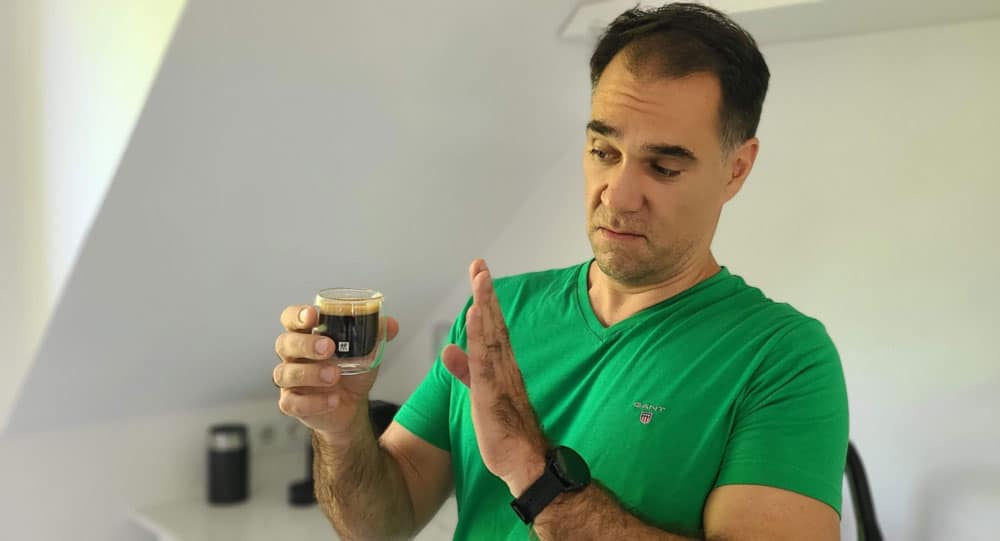
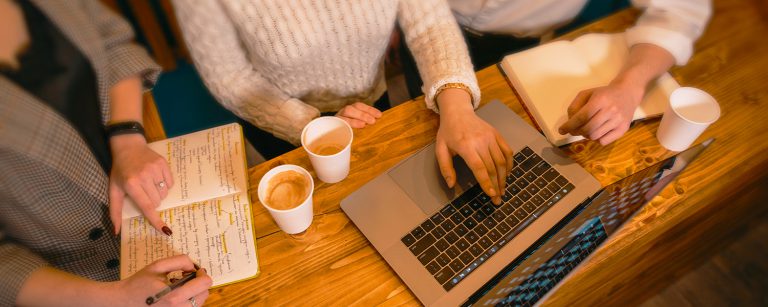
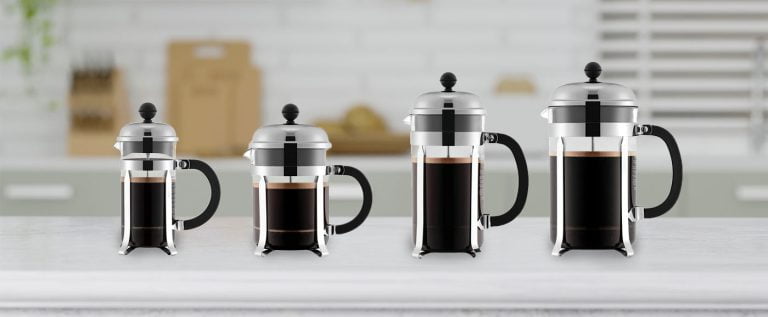
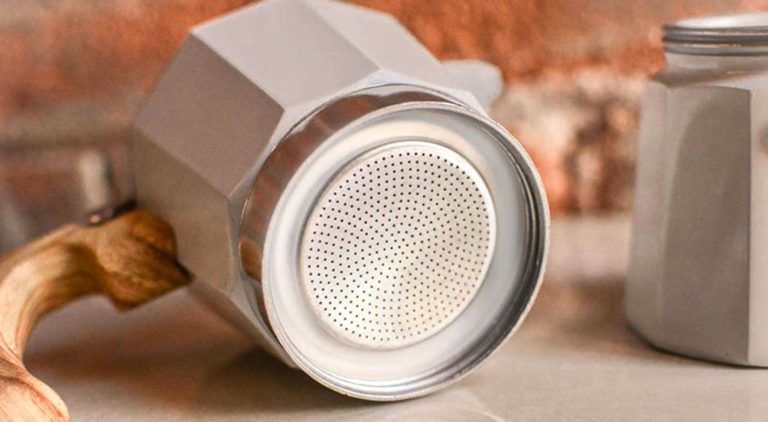
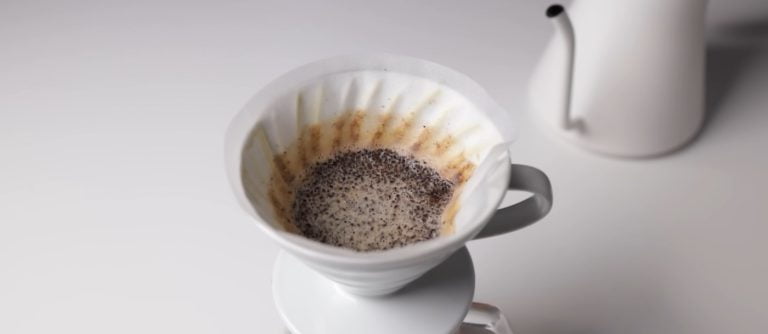


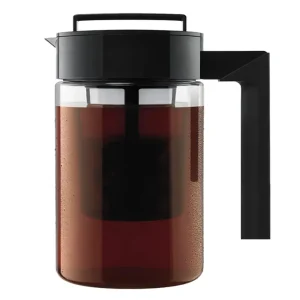 900ML Cold Brew Coffee Maker with Filter
900ML Cold Brew Coffee Maker with Filter 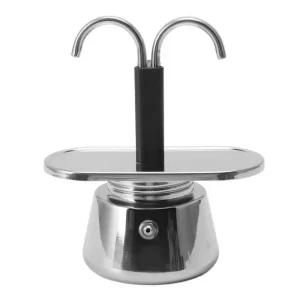 Double Spouted 2-Cup Moka Pot
Double Spouted 2-Cup Moka Pot 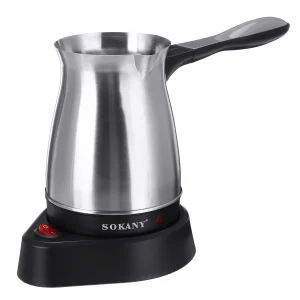 Electric Turkish Coffee Pot
Electric Turkish Coffee Pot 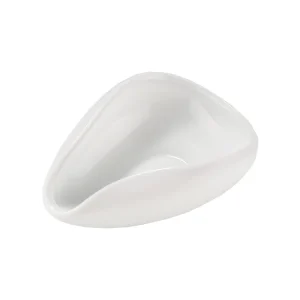 Ceramic Curved Espresso Dosing Cup and Spray Kit
Ceramic Curved Espresso Dosing Cup and Spray Kit 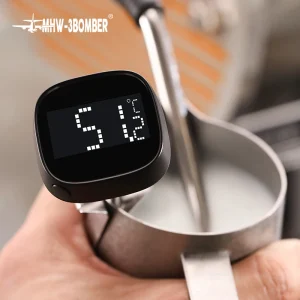 MHW-3BOMBER Digital Instant Read Coffee Thermometer
MHW-3BOMBER Digital Instant Read Coffee Thermometer 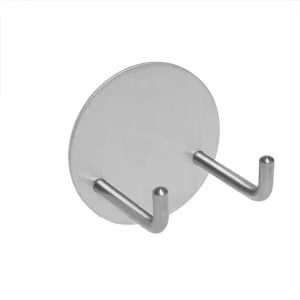 Stainless Steel Portafilter Rack
Stainless Steel Portafilter Rack
Quick question – for someone who’s just starting out with coffee brewing, would you suggest an AeroPress or a French Press as the easiest method to avoid bitterness?
Definitely aeropress, no question.
I’ve been a barista for years, and this article hits all the key points. The cleaning of equipment is a step many overlook but it’s fundamental for the perfect cup. I would say, never forget the importance of the grinder maintenance too.
I loved the article, but I’m a bit confused about the extraction time for AeroPress. Could you explain why two minutes is the sweet spot since it’s much quicker than the French Press method?
Because you’re grinding finer with the aeropress, and also applying pressure when you plunge.
Robusta blended with Arabica has been my go-to, but after reading your article, I’m experimenting with different ratios. The taste profile changes are intriguing. Sharing your experience can guide others on a similar journey.
Excellent article on how to make less bitter coffee. But I’m wondering, what’s your take on using bottled water instead of filtered tap water for coffee brewing? Does it make a significant difference in cutting down bitterness?
This really depends on th type of bottled water you use. Some of them are mineral water from springs, some just filtered water, and some have a horrible plasticy taste. I would just stick with freshly filtered tap water.
I’ve suspected for a while that my brewing time was off for my French Press. I just let the coffee soak without really timing it, so it was always super strong (bitter). Thanks to your guide, I shortened the steeping time, and it’s like I’ve discovered a whole new level of flavor. Deeply grateful for this.
Fascinating read. Tom, do you have any recommendations for water filters? I’m curious how much they affect the taste compared to using tap water.
Yes, I have an article about filtered water for coffee here.
I never realized how much the type of bean could affect bitterness. After reading this article, I switched to 100% Arabica and the difference in smoothness is remarkable. Thanks, Tom, for such an informative piece.
This article is a real eye-opener. I had no idea that not cleaning my grinder could lead to bitterness in my coffee. I cleaned it last night, and what a difference. It’s like I treated myself to a brand new machine.